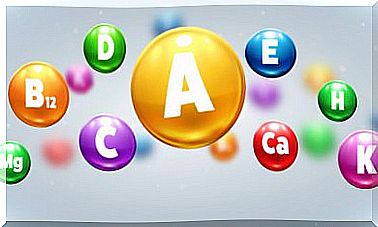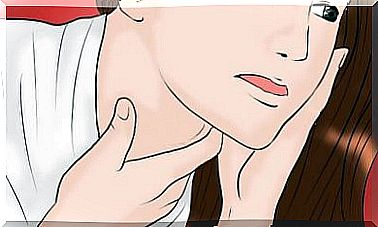Vitamins To Treat Anxiety
Did you know that there are vitamins that can serve as adjuvants to treat anxiety? These micronutrients have essential functions in mental health, and together with relaxation exercises and other strategies they will be useful to reduce the symptoms of this condition.
Today, anxiety is a common disorder in society. According to the Anxiety and Depression Association of America, it affects 40 million adults in the United States and less than half receive treatment. Also, it tends to occur more frequently in women.
However, their treatment must be individualized, since each case has its origin in various factors. However, in general, some vitamins seem to have positive effects on their management. In the next space we will tell you why they are useful.
How does anxiety appear?
In general, anxiety develops in response to stressful situations in everyday life, such as work or academic stress. However, many times it can be the result of a previous physical or mental illness. Likewise, its manifestations are experienced at a cognitive, physiological and psychic level.
This disorder activates various bodily mechanisms that dispose the patient to “flee” when faced with a dangerous situation. It also alters aspects of daily life and generates certain symptoms that affect the quality of life. This can include the following:
- Lack of attention, concentration and memory.
- Palpitations
- Feeling of suffocation
- Insomnia.
- Sweating
- Shaking or dizziness
- Tingle.
- Restlessness.
- Headache
- Feeling of tightness in the chest.
- Digestive discomfort, such as diarrhea
- Irritability, fears, and frustration.

Vitamins for anxiety
Eating habits in Western societies have changed a lot in recent decades. Consequently, the contribution of micronutrients is limited. Due to this, a direct relationship was observed between the appearance of anxiety disorders and mood alterations due to an inadequate diet.
In several studies, such as one published in the Nutrition Journal , it was suggested that providing some vitamins can contribute to the relief of the symptoms of diseases such as those mentioned. What are the most recommended?
Vitamin B complex
This group of compounds fulfills many bodily functions, one of them has to do with the protection of normal neurological function. Similarly, those most closely related to this task are pyridoxine or B6, folic acid or B9 and cobalamin or B12.
At the brain level they collaborate in the conversion of the amino acid tryptophan into serotonin. It is a hormone that produces a feeling of psychological well-being, happiness and tranquility. Therefore, it has been determined that the adequate assimilation of these vitamins in the blood helps the management of anxiety.
Evidence also associates this nutrient with positive changes in mood, control of sleep disturbances and improvement of cognitive abilities. To know if a supplement is necessary, it is recommended to do a blood test.
Vitamin A
Vitamin A or beta-carotene is present in many foods, such as green vegetables, orange or yellow fruits, eggs, milk, and others. Some research suggests that people with anxiety may have low levels of this compound, and that those who take a supplement feel better.
To provide it in sufficient quantity, it is ideal to consume its dietary sources on a daily basis. According to the National Institute of health, the ideal values for a normal adult are 900 micrograms per milliliters in men and 700 in women.
Vitamin E
In a study published in the Indian Journal of Psychiatry, it was determined that people with generalized anxiety and depression have low levels of this vitamin. In turn, it was found that after 6 weeks of supplementation of this compound, together with beta-carotene and vitamin C, the symptoms of these disorders were significantly reduced.
Vitamin C
The use of antioxidants, such as vitamin C or ascorbic acid, has been linked to the prevention of mood disorders, as well as anxiety. Those people who tend to have low blood levels of this substance increase the feeling of well-being after consuming a vitamin supplement.
Even for people who are not deficient, it could help improve energy levels. In a study carried out in 2019, in university students, it was determined that the consumption of this compound improves the quality of sleep and decreases the prevalence of this disease.

What to remember about vitamins for anxiety?
Vitamins alone cannot cure anxiety. However, ensuring optimal consumption of them can serve as a coadjuvant when addressing their symptoms. Therefore, it is essential to improve your diet and choose foods that provide sufficient amounts.
It is also possible to opt for supplementation, but it is advisable to consult with the family doctor or a nutritionist. Both professionals will be able to advise on the necessary daily amount, according to individual characteristics.








